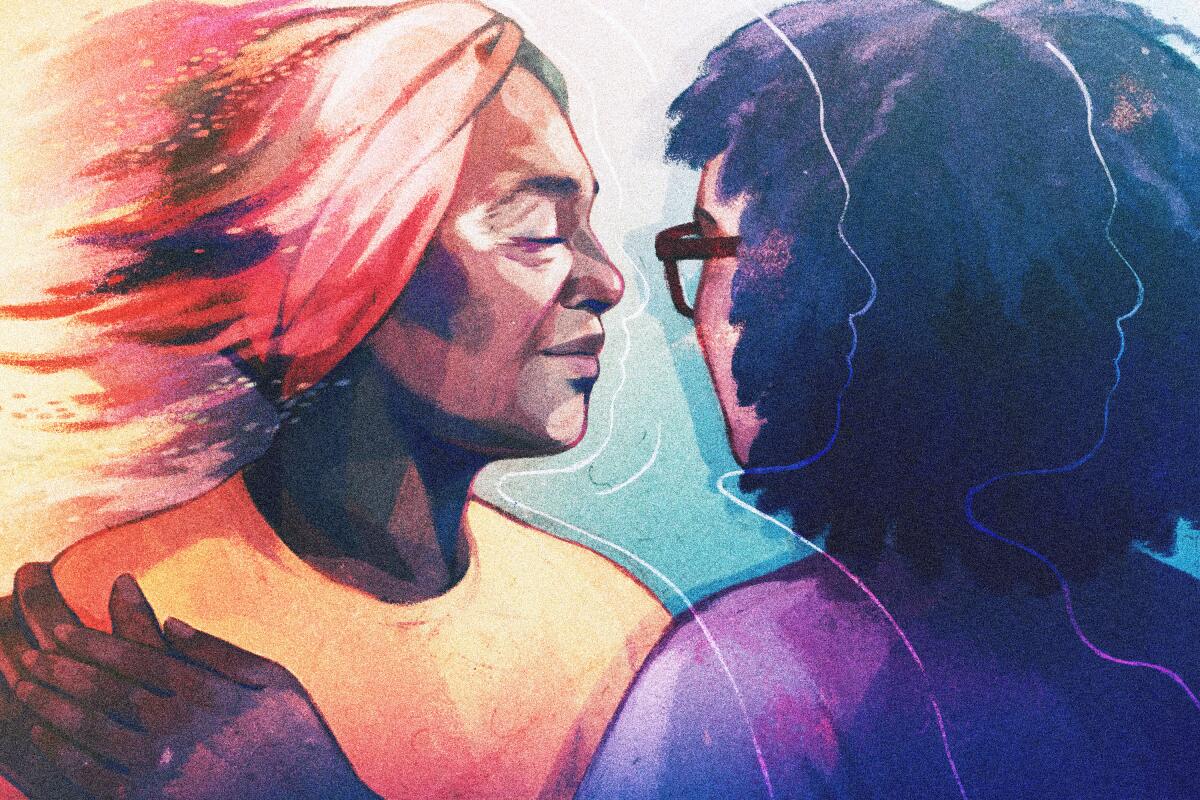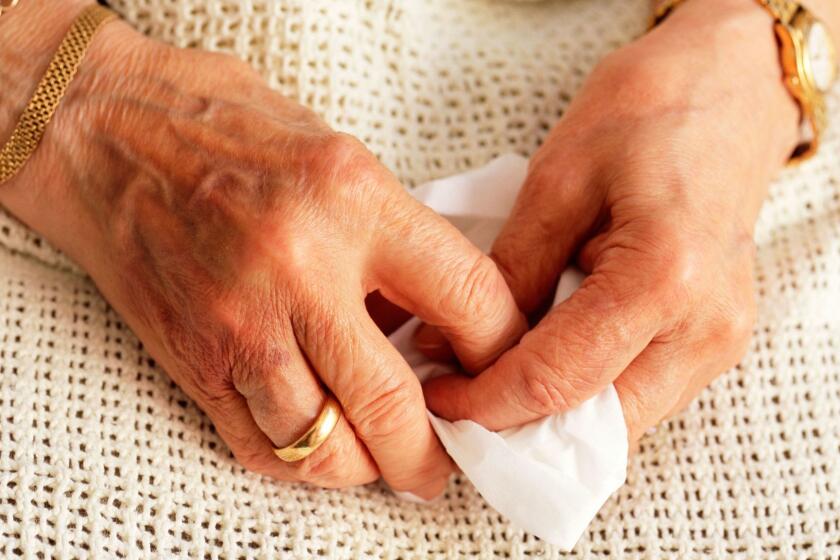Op-Ed: At 29, I wasn’t prepared to be a caregiver. Life had other plans

- Share via
I was on the subway headed to a friend’s comedy show on the Lower East Side when I received a call that changed every plan I had for myself. I answered and stepped off the train, and from that moment on, everything moved like lightning. Within a couple of days, I was home, back in Los Angeles. My mother’s and grandmother’s need for my care was so sudden and so vast that I didn’t comprehend that the move would be permanent.
At the time, I lived in New York City. My goal was to become a late-night TV writer. I had decided to take a stab at stand-up comedy to improve my speaking skills. As a person who stutters, I thought public speaking was my greatest fear. It wasn’t.
Caregiving means being trusted with the culmination of someone else’s life. It’s a gift to be allowed to support someone who is approaching the end of their life, but it also takes an emotional toll. At 29, I became the caregiver to both my mother and grandmother. My grandmother Joyce, then 78, had been diagnosed with dementia four years earlier, and my mom had started showing signs of it at 59.
My mom’s father drowned when he was 29 and my mom was 3, so she knows that people you love can go away and never come back.
I was less than equipped for the journey I was getting ready to take. But I now realize that only time could have taught me the lessons needed for being a caregiver.
I failed miserably, over and over again.
I dramatically refer to my time in New York City as divine alignment. The energy of the city fit my vibe. New York felt like the autonomy and freedom I needed as the only child to a self-proclaimed health nut helicopter mom. But I also had to face the emotional weight of the matriarchs of my family becoming less and less of themselves while I was away.
I was filled with guilt, resentment and sorrow at what I had to take on. It felt like God had a personal vendetta against me. It’s nearly impossible to describe the continual state of mourning one takes on when they become a dementia caregiver unless you’ve experienced it firsthand.
Family context plays a large role in what caregiving can look like. My mother and grandmother’s relationship had been rocky from the start. My mom wanted the love and affection of her mother, and my grandmother needed to feel loved by everyone but my mother. This dynamic intensified with their diagnoses. Watching this trauma unfold day after day became my norm.
I’d often plan days with my mother outside of our home, so she could have an emotional break while another caregiver cared for my grandmother. Joyce was easier to manage if my mother wasn’t there to run to her rescue.
Football ruled in our house, even after Alzheimer’s set in.
I watched this disease further tear apart my already torn-apart family. My grandmother’s incredibly strong will, her increasing paranoia, the yelling, the refusal to eat — near the end everything becomes hard. But with her death came a new life that I was able to build with my mother.
Being a caregiver to my mother felt like living in a different dimension with a person you’ve known your entire life. But in this world, they are only fragments of themselves. And those fragments float away over time as you work like hell to hold onto the memories of who they were that are being crowded out by memories of who they’ve become. You simultaneously lose yourself in the process.
Caregiving is daunting, but given the right mindset and support system, it’s doable and can even mold you into a more compassionate, caring and socially aware individual.
Over time I realized that community would be my saving grace. Our four-bedroom home became an Airbnb that my mother and I ran for about a year before I decided to rent the rooms on a longer-term basis. Over time I became increasingly more diligent with the roommates I chose, making sure they were aware of my mother’s health. The pandemic made a hard situation harder as my mother’s decline sped up drastically due to quarantine. Everything in our home became geared toward her care. The roommates even filled in when I needed a break from the 24/7 grind of care.
Building a community of caregivers for support was the only way I knew to cope. I began sharing our journey on social media. We started with TikTok, then Instagram, then Facebook.
I found fulfillment in teaching what I had learned along the journey. It gave the pain a purpose. I also found my people, other caregivers who were living through what I was living through.
I hope to help other caregivers by leading the way and letting them know that though the days will be hard, there will always be another person who understands, and sometimes they’re just a short internet search away.
Jacquelyn Revere is a writer and social media influencer in Los Angeles. @momofmymom
More to Read
A cure for the common opinion
Get thought-provoking perspectives with our weekly newsletter.
You may occasionally receive promotional content from the Los Angeles Times.












